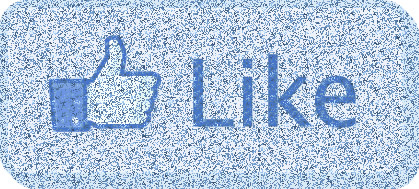Whither Facebook?
The tsunami of commentary about Facebook’s IPO has finally died down. So now what? I predict several quarters–or even years–of earnings “surprises.” But as Facebook meets the challenge of monetizing its site, I see trouble ahead.
The User Experience
Facebook’s monetization strategy will inevitably end up degrading the user experience. We’ve seen this movie before. First the land grab then the rush to monetize.
Let’s face it: to be effective marketing tools, ads have to be intrusive. Facebook’s ads are currently very unobtrusive. Apparently, the value proposition to advertisers is the targeting. I’ve done (small) tests for Gigmor and found them to be very ineffective. In my experience, the ability to target musicians is almost nonexistent. Admittedly, I’m a focus group of one. But targeting based on self-reported data is questionable. Recently Facebook announced a new door to the walled garden where they will follow their members as they surf the web and then serve relevant ads when they return to Facebook. That could be highly effective for the advertisers but they’re going to face some real privacy issues. Here’s a new maxim: the more accurate the user data used for targeting, the greater the privacy issue.
I predict Facebook will have to enlarge the ads in the right column so they’re more visible. They’ll also increase the number of sponsored posts that appear on members’ walls. It’ll get harder to distinguish them from friends’ posts. You’ve probably already seen some of them. They’ll clutter up that famously clean (but cold) UI. And that’ll piss off Facebook members.
Walled Garden
Facebook is a walled garden. As a former employee of one of the first walled gardens (AOL), I’m very familiar with the essential conflict between content providers and distributors in this model, as well as the tension between consumers and the owner of the walled garden.
Websites seeking an audience will go where the eyeballs are. And, grudgingly, pay for access. But they don’t have any loyalty to the owner of the garden. In fact, they resent that owner highly. The garden is nothing more than a tollkeeper, a necessary evil. The garden can offer them value but the content provider/merchant’s goal is to create a direct relationship with customers and ultimately bypass the garden. And when the garden’s growth slows, they’ll transition to the next big thing.
The consumer doesn’t really love the garden either. The consumer likes the freedom of the Internet. You’d think, given the vastness of the Internet, consumers would like the curation services of a portal but they don’t seem to–as evidenced by AOL and Yahoo’s well-publicized struggles. Consumers like communities, discovery (see Pinterest) and search. Huffington Post is the most successful portal these days but they specialize in one category: news.
Open Vs. Closed Systems
A walled garden is a semi-closed system. You are not prohibited from leaving but the owner of the garden makes the rules as long as you stay. This can create problems with the garden’s partners. We saw this again and again at AOL. We’d change something minor on the service and the phones would start ringing off the hook with partners complaining. The garden’s priorities don’t align with their partners’ priorities. This has already happened with Facebook. You hear of even big Facebook partners like Zynga having to adapt to changes in Facebook’s environment.
I experienced this recently with a client of my agency, Troubadour Digital Media. Facebook wanted our client to change from a Page to a Public Figure Profile (Facebook-speak). But when we made the change, we discovered we’d lost Insights, which provides valuable information on our clients’ audience metrics. Our contact at Facebook never mentioned this and stopped returning my emails when I asked about this. I’m sure Facebook recommended the change because it benefitted them in some way.
Facebook will take care of Facebook, ultimately at the expense of its users and partners.


Comments are closed.